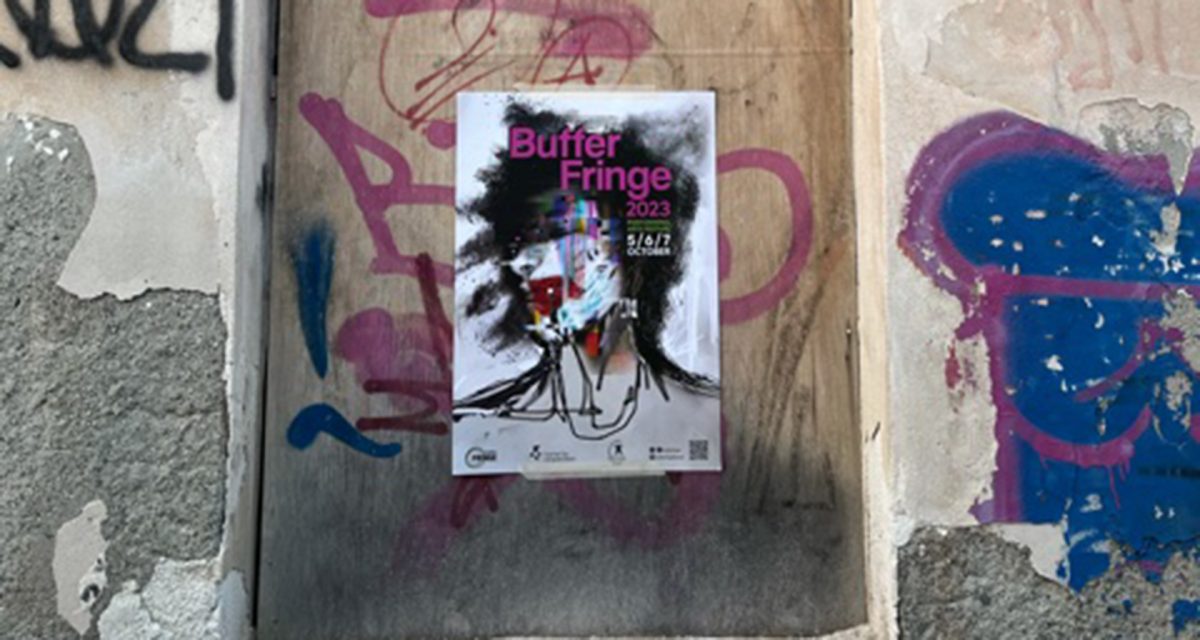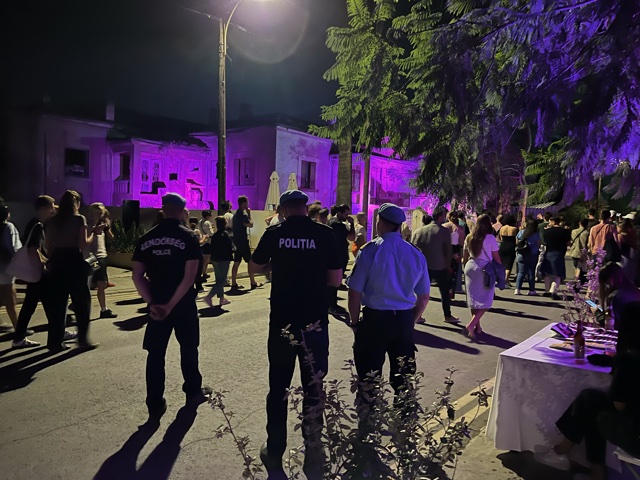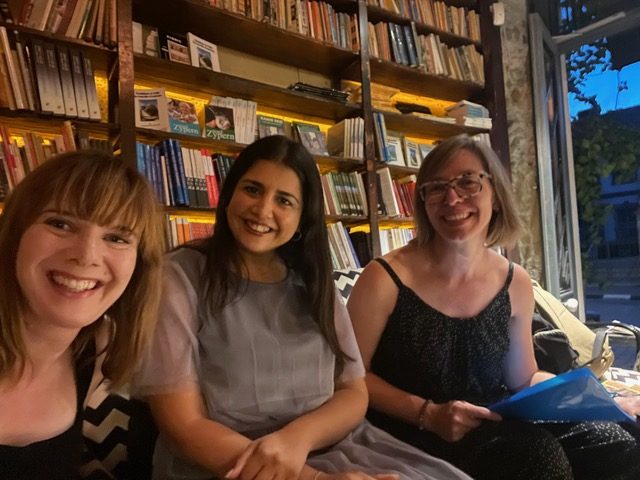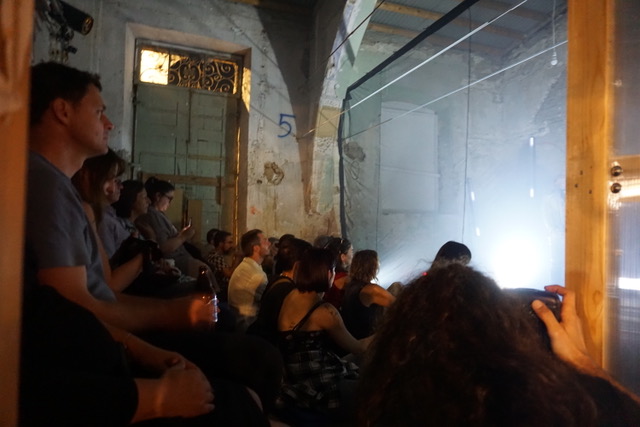
Dr. Christine Van Winkle explores the role of a community festival in a divided country
Van Winkle’s latest research project took her to the only divided capital in the world to find out more about the impacts of a local festival’s involvement in post-conflict recovery.
Nicosia, Cyprus, is currently the only divided capital in the world. Split down the middle by the Buffer Zone patrolled by the United Nations, the island’s Greek and Turkish residents reside on separate sides of the Green Zone. However, every year, the Buffer Fringe Festival takes place on both sides of the division and within it, allowing residents to examine conflict and the physical and psychological barriers in their home city through artistic performance.
This year, Christine Van Winkle, a Faculty of Kinesiology and Recreation Management professor, attended the festival alongside her research assistant Kiri Shafto. The two were there conducting research for her latest Social Sciences and Humanities Research Council-funded project, Revelry and Resilience. The project explores how festivals contribute (or don’t) to community resilience and recovery after any type of disaster.
“The intention with the Buffer Fringe is to bring people together through arts and culture to reflect on different themes related to the post-conflict situation in Cyprus” said Van Winkle.

You can still see bullet holes in buildings and boarded-up windows in the area, said Van Winkle, showing signs of the conflict that afflicted the city during the 1960’s and 70s.
“It is a very powerful place to visit because you see evidence of the conflict that happened,” said Van Winkle. “And you see the consequences of that. You’re in a divided space.”
Van Winkle and Shafto interviewed community residents, staff, volunteers, and other organizations familiar with the festival to understand their perceptions of its role in the community.
While Revelry and Resilience and exploring the Buffer Fringe Festival is the latest step in Van Winkle’s questioning of the complex role of leisure and tourism in society, many of the questions she is asking today go back to a beach she visited as a child.
Van Winkle said she saw the changes brought on by the tourism industry as a child during vacations to Hawaii. She said she remembers visiting Hanauma Bay on the coast of Oahu for the first time, buying fish food from beach vendors before wading into the ocean water to feed the marine life.
“For a kid from the prairies, going to the ocean and seeing somewhere like Hanauma Bay was incredibly powerful,” said Van Winkle.

Years later, Van Winkle and her family would return, but now there were signs asking visitors not to feed the fish. There were also warnings about proper sunscreen use, as the high-traffic tourist area was suffering with pollution from visitor’s improper use of sunscreen. To protect the area, there is now a reservation system to manage tourist access, ease environmental strain, and ensure Indigenous Hawaiians have access to the culturally significant area.
Van Winkle said seeing those changes first-hand opened her eyes to tourism’s social, economic, and environmental benefits and consequences.
“I saw the power of what tourism could do for individuals and communities,” said Van Winkle. “But also, the consequences.”
Van Winkle said she held onto this experience as she grew older, which was partly one of the reasons why she began studying tourism. Van Winkle is an alum of FKRM’s Recreation Studies degree program (now the Recreation Management and Community Development).
Van Winkle said she loved her time exploring different areas of recreation during her undergraduate degree but felt she had not been able to deeply explore some of her more significant questions about tourism and recreation. After graduating, she continued by pursuing a Master of Arts in FKRM and completed her thesis research with Parks Canada before beginning work with the Winnipeg Fringe Festival as a volunteer coordinator.

Since 1988, the Winnipeg Fringe has been a staple in the arts community in the city, bringing over 170 performing companies from all over the world to tell their stories together. Working at the festival in different roles changed Van Winkle’s life. She said she could see how her love of arts and culture tied to the questions she had about recreation, tourism and community development.
“The Winnipeg community is special to me,” she said. “Our grassroots, community-based organizations are so incredibly passionate about the work they do.”
Van Winkle eventually completed her PhD, graduating from Clemson University’s renowned Parks, Recreation & Tourism Management program. Her research, conducted with Winnipeg’s Exchange District Business Improvement Zone, created audio tours of the downtown area, examining how people learned through the experience.
Today, Van Winkle is one of the primary investigators of FKRM’s Leisure and Tourism lab, exploring the supply and demand of sustainable recreation and tourism and the role events play in communities.

“I feel grateful that I have the freedom as an academic to continue asking questions and to allow the answers to some of the early questions I asked put me on new paths.”
While Nicosia and Hanauma Bay and the questions Van Winkle is asking about the two might feel very distant, she said they are more connected than they appear.
“I see the thread; it is all connected by how we experience the world through leisure and tourism,” she said. “We gain these very personal connections and understanding of the places we visit and the people we meet, and that doesn’t happen without consequence.”
Now, part of Van Winkle’s excitement with projects like Resilience and Revelry and the work with Buffer Fringe is getting to watch graduate students start their journeys, see where their paths will lead them, and discover what new questions they have to ask about the role of leisure and tourism in our lives and communities.






